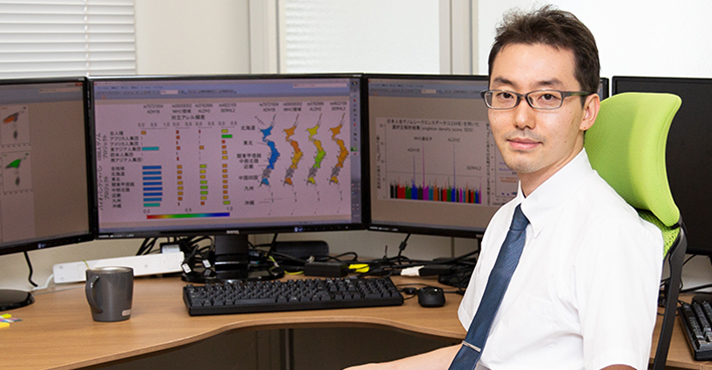
Professor Yukinori Okada, Department of Statistical Genetics, Graduate School of Medicine
Dr. Yukinori Okada specializes in statistical genetics and has published a number of outstanding results in authoritative peer-reviewed journals. He started his career at The University of Tokyo Hospital and gained valuable experience at Brigham and Women's Hospital, Harvard Medical School, and Broad Institute, located in Massachusetts, USA. He was appointed as a professor at Osaka University in 2016, making him one of the youngest full professors at its School of Medicine.

Professor Okada is a pioneering researcher in his field, a field in which few specialists currently exist in Japan. To honor his remarkable achievements, he has received several awards, such as the Young Scientists’ Prize from the Minister of Education, Culture, Sports, Science and Technology (MEXT), Japan.
Recently, he published an article entitled “ Deep whole-genome sequencing reveals recent selection signatures linked to evolution and disease risk of Japanese” in Nature Communications , in which the research team conducted large-scale genomic analysis to identify evolved traits among Japanese descendants.
“Where we are from and where we are going.” Investigating human history is a scientific topic that always seems to fascinate us. While it is difficult to directly see what happened in the past, we can, however, estimate these occurrences by assessing genome sequence data of modern populations.
To this end, we used the whole genome sequencing (WGS) data of 2,234 subjects of the Japanese population. By applying the latest method of statistical genetics to such large scale WGS data, we identified multiple genetic loci that were under strong selection pressure in the last several thousand years.
We also revealed that alcohol and nutrition-related modern phenotypes were under selection pressure in Japanese, although selection pressure in genome sequences derived from archaic humans (Neanderthals) was not clear.

Today, there exists a huge amount of big data in real world. However, we still do not know how we can fully analyze them. Basically, we have more data than we can analyze. While investigation of human history was not the original objective of human genome research, it surely showed us the infinite potential of big data analysis.
*Further information on his work: http://www.sg.med.osaka-u.ac.jp/tools.html
Edit: Machiko Mawatari, Christopher Bubb